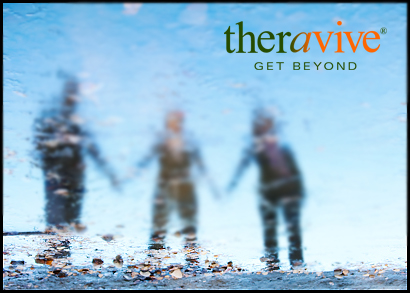September 19, 2014
by Christie Hunter

Traumatic Brain Injury (TBI) is a severe intracranial injury caused by a violent blow to the skull. During TBI the brain is impacted by severe force, damaging the active brain cells and tearing delicate brain nerves, thus increasing the risk of internal bleeding in the brain. TBI is generally caused due to head-on collisions, skull fracture, etc. However, the intensity and aftermath of brain injury depend on which part of the brain is injured.
[More]
“No one ever told me that grief felt so like fear. I am not afraid, but the sensation is like being afraid. The same fluttering in the stomach, the same restlessness, the yawning. I keep on swallowing… Perhaps more strictly, like suspense. Or like waiting: just hanging about waiting for something to happen. It gives life a permanently provisional feeling.” C.S. Lewis
[More]
June is PTSD (Post Traumatic Stress Disorder) awareness month. This year we are joining the National Center for PTSD to raise awareness. The National Center for PTSD is part of the Veteran’s Affairs Administration (VA). As such, they support agencies and organizations who provide services to veterans with PTSD.
[More]
Resilience is a protective factor in coping with normal adversities. But in situations where children (or adults) feel a loss of control – powerless to protect themselves or to get the protection they need – trauma may result.
[More]
I do not believe that counselling needs to be isolated and enclosed within four walls… what happens in sessions should be able to be used on the outside, in someone’s lived life. Sometimes this is called experiential therapy and is why I believe that horses help creating practical applications of the utmost importance. Can you imagine having 40 acres and five horses as a part of the counselling experience? What kind of a world would that create to allow the freedom to explore and express yourself.
[More]
February 17, 2014
by LuAnn Pierce, LCSW

When trauma affects one person in a family, the whole family unit is affected. In fact, many professionals believe that anything that affects one person in a family (or couple) will also affect the other(s). It is easy to see how this could happen. A family is thought of a unit – one whole made of many parts.
[More]
In the last blog, “Trauma Informed Care; The Details of Care”, the risk and protective factors were named and highlighted closing with the statement that Trauma informed care involves the closely interrelated triad of; understanding, commitment, and practice.
[More]
Whether you are working with people who have experienced trauma or you have experienced it yourself, it is helpful to understand some of the changes that you might witness.
[More]
It is my belief that solidarity can touch both clinician and anyone accessing services. In an individualistic world we are bombarded by messages that we need to be able to do things on our own and it permeates through our being, influencing our action. However this is completely contrary to our nature. We are born dependant and needing to be cared for and we thrive in community. Therefore the concept of solidarity is necessary and takes belonging to the next level.
[More]
Emotionally focused therapy proposes that emotions themselves have an innately adaptive potential that, if activated, can help clients change problematic emotional states or unwanted self-experiences. Emotions themselves do not inhibit the therapeutic process, but people’s perception is seen as the challenge that creates stuck-ness.
[More]